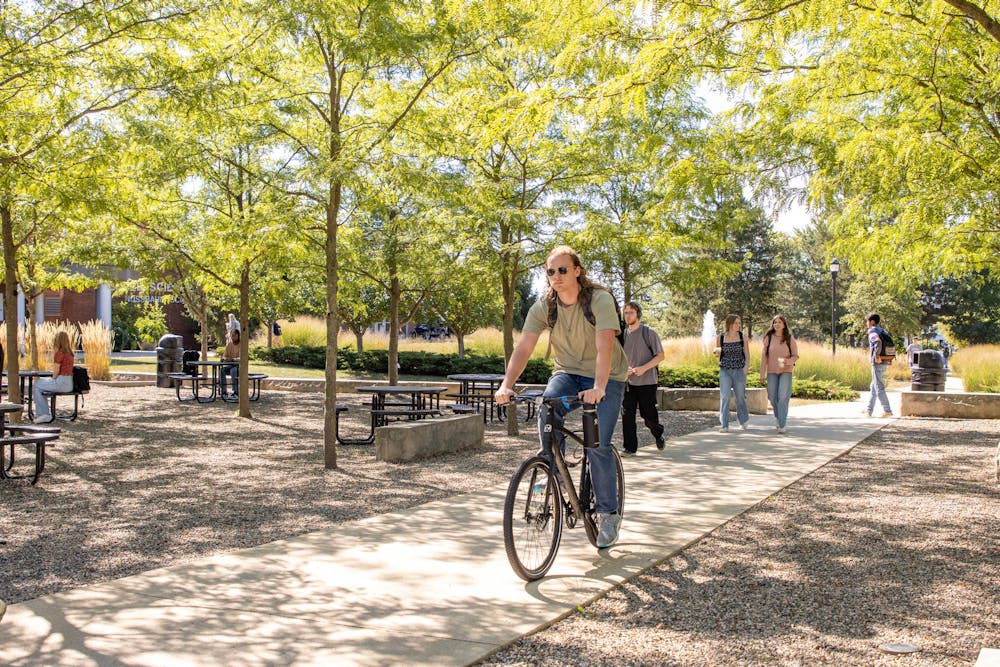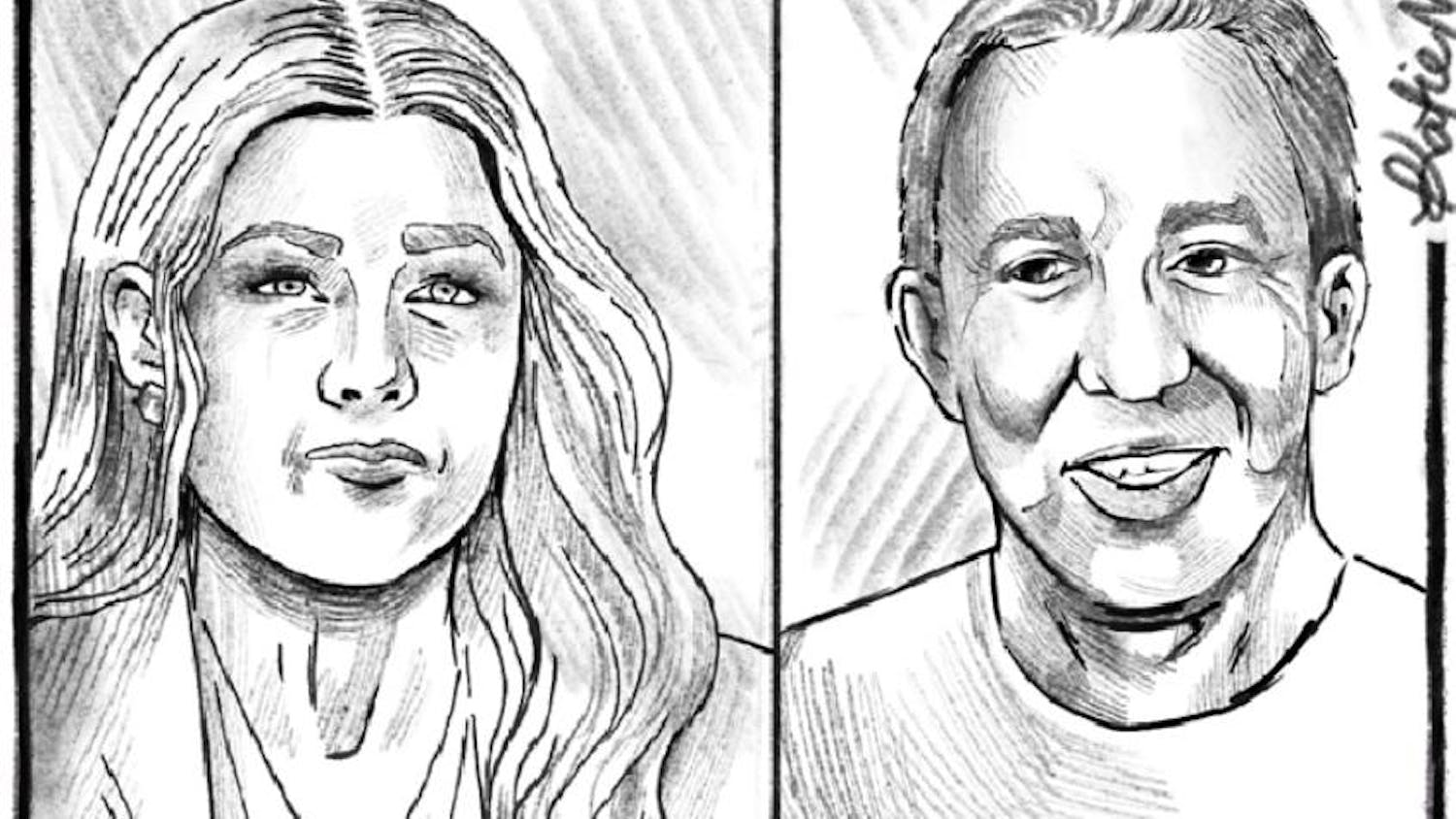It’s 7:58 a.m.
There’s two minutes till class starts.
Neglecting dental hygiene, a student throws on clothes, grabs their backpack and bolts out the door. And that’s when they see it — an unlocked bike. With little time to spare, they hop on someone else's bike and arrive at class.
Rather than seven, they’re only three minutes late — not considering how their actions impacted another person’s day.
Senior Na Wei planned to ride her bicycle, but it disappeared from the bike rack at Wolgemuth Hall. What might’ve been a 10-minute bike ride turned into a 15-minute walk, affecting her timeliness. Two weeks later, she found her bike parked outside the Euler Science Complex building.
Some people might call this “bike borrowing,” but that’s not what everyone calls it.
“You're taking something that doesn't belong to you, and putting it somewhere else,” Mike Guebert, professor of geology and environmental science, said. “If you're not returning it to that person — I call it stealing.”
He has heard students ask how it happens that they can leave a laptop in the library, get lunch, come back and it’s still there. Yet someone feels free to take a bicycle without asking. Perhaps some think there’s a community aspect to bikes.
However, Guebert said if it’s not yours, it’s somebody else's — don’t take it.
“Why should someone else sacrifice the convenience of their bike because you didn't plan ahead?” Richard Smith, associate professor of biblical studies, said. “What if that person needed their own bike to get to class, then you’re taking it because it convenienced you.”
God commanded in Exodus 20:15, “You shall not steal,” which implies people do have ownership.
Smith said God gives good gifts which is why humans have ownership of private property. Respecting someone’s property is essential to human flourishing. He said taking someone’s things without considering your actions indicates foolishness.
He wondered if people who steal bikes go to chapel because what a person does with their body is a reflection of their virtue.
“It kind of makes you want to ask them: How's your quiet time going? Is it awesome?” he said. “Wow, so your quiet time is awesome, yet you steal bikes and cheat on tests. Maybe you're just living a lie and honestly playing a game — a religious game.”
What does it say about our community if people have no problem taking someone’s property? he asked.
In environmental science, Guebert said there’s a principle called Tragedy of the Commons. It’s when property is owned in common and people take advantage of it, only being respectful when it’s in their interests.
“They take what they can get out of it, but don't think about what other people would need for themselves,” Guebert said. “I mean that's non-Christian, that's anti-Christian.”
We struggle to put others before ourselves all the time. As people living in a broken world, we cannot achieve perfection, but certainly we can strive to respect one another.
May Young is the department chair and associate professor of biblical studies.
She pointed to Ephesians 2:4 which says, “Each of you should look not only to your own interests, but also to the interests of others.”
Ephesians 2:4 highlights dual responsibility.
As property owners, we need to be responsible.
Chief of Police Mike Spaulding encouraged people to put locks on their bikes. Securing property isn’t necessarily a sign of lacking trust, he said. Rather, it’s being responsible.
Those who need transportation have a responsibility too. They need to find their own transportation – the right and honest way by getting their own bicycle.
Guebert oversees the Bike Kitchen which runs out of the Ockenga Honors Lodge garage. There are bikes for sale and rent, and repair services. Rental prices range between $20 and $30.
The Bike Kitchen can be emailed at: upcycle@taylor.edu.
Next time there’s two minutes till class, take responsibility. Not someone’s bike.




